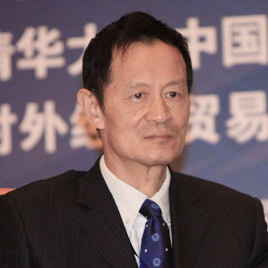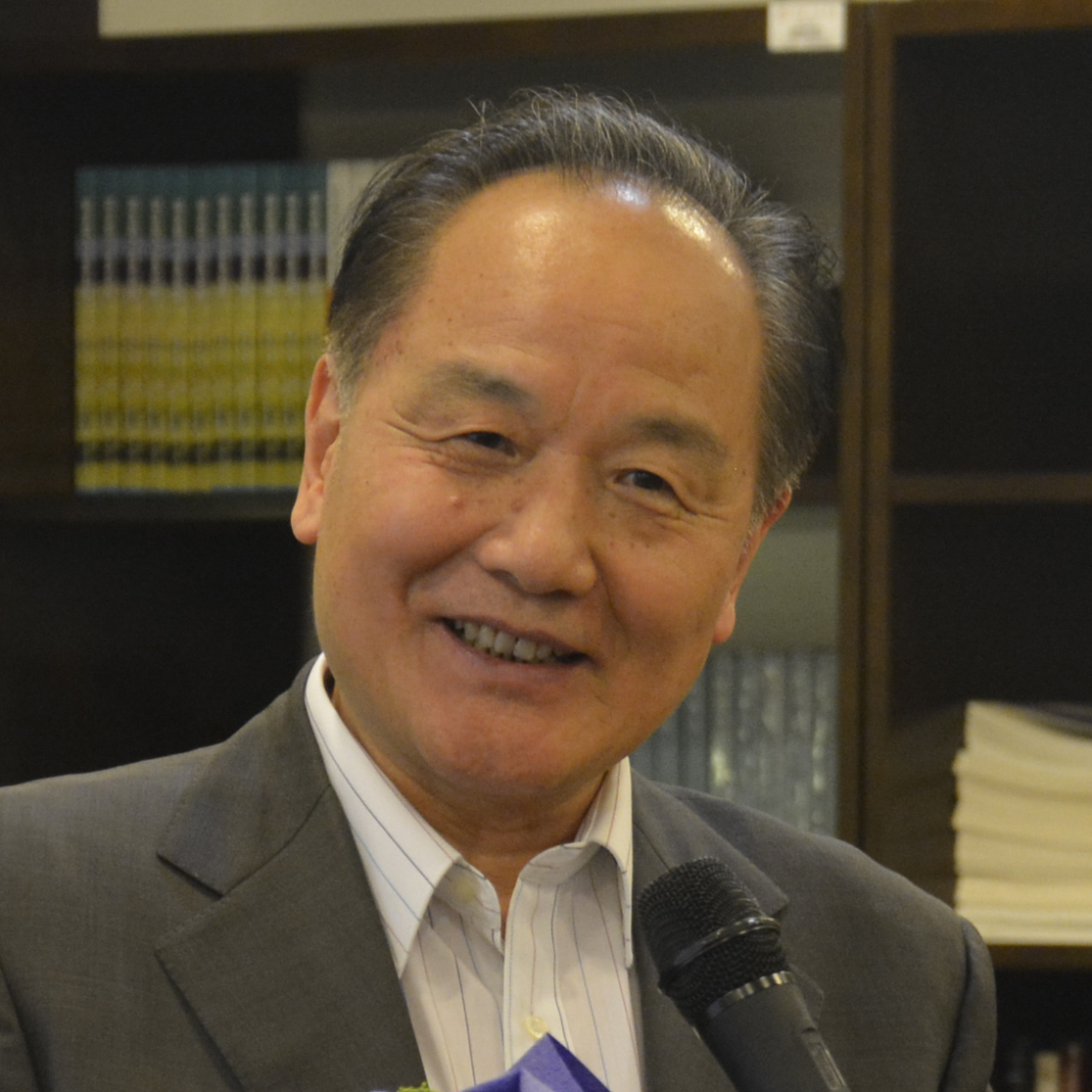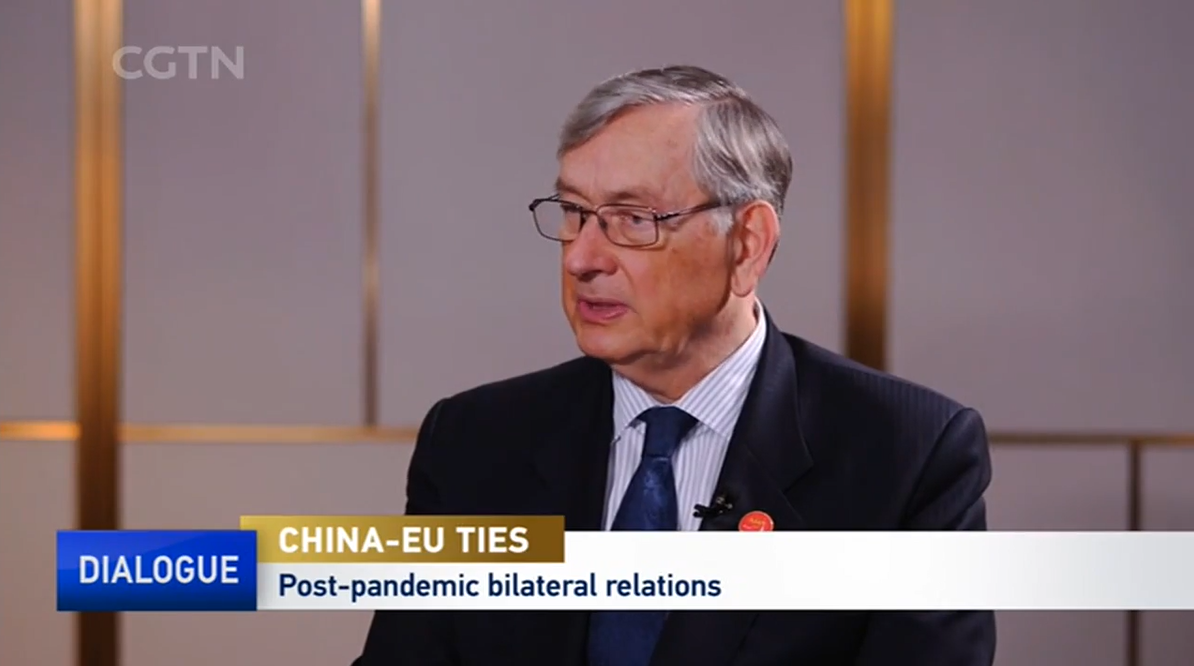Commentaries
Your Present Location: Teacher_Home> He Weiwen> CommentariesTailored support can boost private economy
Source: China Daily Published: 2018-11-12
President Xi Jinping's recent speech on the private economy has boosted confidence in the private sector as well as China's economy. But what difficulties nonpublic enterprises face and how can they be resolved? Four experts share their views on the issue. Excerpts follow:
Private firms need financial support
The nonpublic sector has played an important role in boosting China's exports, building the industry chain and industry clustering, and perfecting the market system. It is therefore an important component of China's economic foundation.
Nonpublic enterprises which have experienced rapid growth over the past decades may have developed some rigid ways of thinking, and thus cannot find the appropriate way to meet a new challenge. This, combined with the changes in some external factors, an emerging global economic trend, the changed industrial structure, and the impact of new technologies, has had a somewhat negative impact on the confidence of private entrepreneurs.
The numerous challenges nonpublic enterprises face today are not only because they lack enough access to bank loans, but also because of the feeble support they have received from the capital market as a whole. Therefore, granting them easier access to financing and allowing the entry of more private capital will help form a virtuous economic circle. And increased differentiated financial services provided by financial institutions will help private enterprises, especially small-and micro-sized businesses, to obtain greater benefits from the financial system.
Liu Qiao, dean of the Guanghua School of Management, Peking University
Launch reform to help SMEs
Financing difficulties and high financing costs have been a big problem for China's small and medium-sized private enterprises.
Why has the problem remained unsolved?
The issue is largely related to the size of these enterprises and their respective operations. Most of the nonpublic enterprises are small in scale and correspondingly they seek relatively small loans from banks. But the banks have to do the same amount of work to issue loans to either the SMEs or large enterprises— for instance, assessing a borrower's net worth, lawyers' fees and time costs. Besides, there is still a big gap between most private SMEs and large enterprises in terms of operation capability and self-regulation. As a result, the banks are less willing to grant loans to the SMEs.
According to a report issued by the Chinese Academy of Fiscal Sciences affiliated to the Ministry of Finance in July, the average financing scale of nonpublic sample enterprises has drastically declined over the past three years, from 599 million yuan ($93.73 billion) in 2015 to 460 million yuan in 2017.
How to address this problem?
For that, nonpublic SMEs have to improve their operations, such as making clearer their account management. And the banks need to learn how to deal with these businesses and increase their lending to the SMEs to an appropriate scale. In this respect, the United States' experience offers a lesson. The US has more than 500 small and medium-sized local banks, which play an important role in financing domestic small businesses.
As such, allowing the local banks to play their full role may resolve the lingering financing problem facing China's private SMEs.
Still, it would be unrealistic to rely on some short-term policies to solve the long-standing financing problem of China's SMEs. The country should establish some investment and financing institutions that are fully focused on small businesses.
Li Daokui, director of the Center for China in World Economy at Tsinghua University and a senior advisor to Pangoal
State sector's advance is not private sector's retreat
The merger and acquisition of listed private companies using State-owned capital has been debated in various social circles in recent times. Faced with the increased risk of the implosion of stock pledge and breaking of the capital chain, some non-State enterprises turned to financially strong State-owned enterprises to purchase their shares. This is a rational choice these private enterprises have made, yet they have been criticized by many observers.
The transfer of the holding power from some nonpublic enterprises to SOEs has not made much difference to the normal M&A deals in the capital market. This is likely to be an important feature of resource reconfiguration in the capital market, which has matured to a large extent after three decades of development. But the new round of M&A deals using State capital has been interpreted by some media outlets and scholars as the "guo jin min tui", or the "advance of the State sector and retreat of the nonpublic sector" in the capital market. This interpretation has raised concerns about the survival and development of the nonpublic economy.
China's capital market entered the era of diversified equities in 2015, after which M&A deals among listed companies have become more frequent, with asset restructuring and resource allocation. However, among these M&A and asset restructuring moves, there have been equity transfers from nonpublic to State capital, as well as and even equity transfers from State to nonpublic capital.
Still, we cannot interpret a specific SOE's merger with or acquisition of a private enterprise as the guo jin min tui, just as we cannot interpret the transfer of an SOE's holding power to a nonpublic enterprises as guo tui min jin or the "retreat of the State sector and advance of nonpublic sector".
Zheng Zhigang, a senior fellow of Chongyang Institute for Financial Studies, Renmin University of China
Export-oriented private firms need banks' help
Guo jin min tui is a false proposition as it does not have backup data. In a recent speech, President Xi Jinping said the nonpublic sector accounts for 50 percent of China's fiscal revenue, 60 percent of its GDP, 70 percent of its new technologies, and 80 percent of its newly added employment. These are convincing data that show the nonpublic sector already accounts for the lion's share of China's economy. World Bank data, too, indicate China's SOEs account for only 33 percent of its GDP, far less than in some northern European countries.
China has not only excellent SOEs but also joint ventures and private enterprises that have done great jobs in their respective areas, so there is no need to hype up the guo jin min tui concept. Xi also vowed to address the difficulties facing the nonpublic sector. So the country should study the division between SOEs and non-State enterprises, and since the former focuses on public welfare and the latter on general business activities, the authorities should extend to both sectors equal credit terms such as the same interest rates for loans.
Besides, SMEs should also be included in the country's broader industry chain and allowed to play a supportive role in large SOEs production activities.
As many private enterprises are export-oriented, and therefore are facing difficulties due to the changed global market environment, they should get support from China's special financing services, which their SOE counterparts are privileged to have. For example, some Chinese private enterprises find it extremely difficult to get the payments for the goods they export to some African countries. So China's policy banks should provide financing support for them with the same conditions and treatment as those extended to the SOEs.
He Weiwen, a senior fellow of Chongyang Institute for Financial Studies, Renmin University of China

















































































 京公网安备 11010802037854号
京公网安备 11010802037854号





